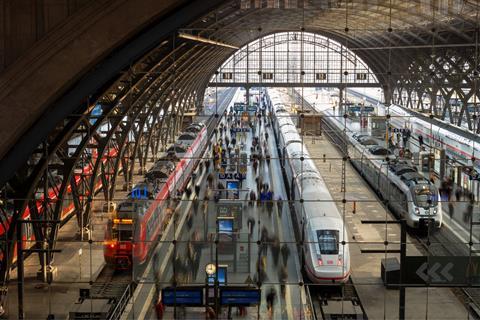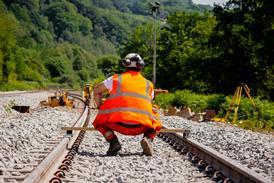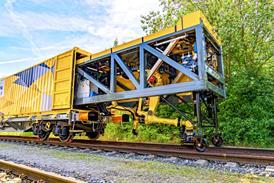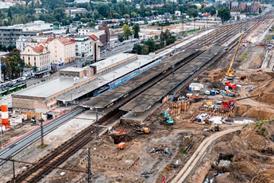
GERMANY: Rail services in Germany were badly disrupted by industrial action over pay by the train drivers’ trade union GD during the week commencing January 8. On January 10 Deutsche Bahn said that about 20% of long-distance passenger services were running, with the number of regional and local trains also massively reduced. Freight trains carrying essential goods were being prioritised, but many services were brought to a halt.
Just a few days earlier, on January 1, DB Netz AG and DB Station&Service AG were amalgamated into DB InfraGO AG as a public service infrastructure company. The two businesses now form separate divisions within the new company, which will draw up a multi-year federal infrastructure plan defining key performance indicators for the network and stations.
InfraGO’s responsibilities will include a huge track upgrading programme that is already in hand. This has done nothing for DB’s punctuality, with just 52% of IC and ICE trains meeting on-time criteria in November last year. DB said that 75% of long-distance services were affected by at least one worksite, although 84∙7% of all passenger services arrived within 5 min of booked time.
With further major upgrading work planned over the next decade, the outlook for improving punctuality is uncertain at best, although DB is aiming to concentrate work in specific corridors to reduce the overall impact of delays.
This year the busy 61 km Riedbahn forming the principal route between Mannheim and Frankfurt am Main will be closed between July 15 and December 14. Major upgrading work is planned, including installation of three computer-based interlockings and ETCS, to be undertaken at a cost of €1∙3bn as an interim step before construction of a new line between the two cities can begin. A preferred route for a double-track alignment is due to be presented to the Bundestag in the near future with a view to the line being completed some time after 2030.
Funding for major projects such as this was intended to come from a €40bn pot promised by the government to modernise and rebuild parts of DB’s 33 400 km network. However, this plan was thrown into disarray on November 15 when the Federal Constitutional Court ruled that parliament’s decision to turn €60bn of unused funds that had been contracted during the Covid-19 pandemic into a Climate & Transformation Fund was unlawful. This was to have provided finance for rail upgrading schemes, but the government was forced to rethink after its funding reallocation was deemed to have violated the so-called debt brake introduced in 2009 which caps government borrowing except during emergencies.
On December 13 the government gave assurances that investment in the rail network would not be cut back, although it was not clear how the funds would be found. One option appears to be a further increase in equity so that DB can finance at least some of the investment itself. The finance ministry is also understood to be considering further privatisation of federal bodies such as Deutsche Post and Deutsche Telekom to generate funds for the rail modernisation programme. ‘We will privatise federal investments that are no longer needed and use the proceeds to strengthen Deutsche Bahn’, ministry sources told German media.
Despite a call in late November from the Federal Cartel Office ― and earlier from the Federal Monopolies Commission ― for DB to be split into separate infrastructure and operations businesses, the government has so far insisted that it should remain as a single entity.
In the meantime, any discussion of funding for DB inevitably evokes the future of the Deutschland-Ticket introduced on May 1 2023 that offered a month’s travel on short-distance and regional trains for just €49. With the cost shared between federal government and the Länder, a decision on future pricing of the offer is expected in May.

















